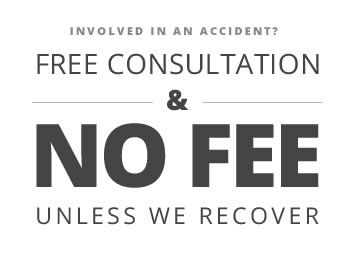If you or a loved one suffers traumatic brain injury (TBI) as a result of a car accident, the impact is extensive and life-changing. Unlike broken bones and contusions that heal in a relatively short time, an injury to the brain is unique and can have long-lasting implications; some accident victims may never fully recover. The psychological effects of a TBI can be especially harmful, as bipolar conditions, memory loss, and other psychoses are common for victims. Treatment of these types of injuries come with sky-high medical costs and other losses compared to less severe injuries. Consult with a Baltimore County auto accident lawyer about your options for compensation if you’re the victim of a TBI.
Traumatic Brain Injuries Are Unique: The brain is the control center for all bodily activity, so a TBI can lead to physical and motor skills conditions. However, the brain is the cognitive hub for thought, learning, memory, and other cerebral functions. According to The Psychiatric Times, psychological issues that accompany TBI are unique for three primary reasons.
- Latency: Often, there is a delay between suffering a TBI and the development of actual physical symptoms. The onset of psychological issues may be unexpected, sudden, and misunderstood.
- Family History: Diagnosing a psychological condition due to TBI is complicated if a victim has a family history of psychotic disorders.
- Schizophrenia: There is medical evidence that suggests that a TBI directly causes schizophrenia because of the damage to areas of the brain that control higher functions. This condition often goes undetected due to the presence of other symptoms. Schizophrenia causes issues with behavior, mood swings, and disruption in thought processing. Specific symptoms include:
- Auditory hallucination – commonly described as hearing voices;
- Delusions, thought disorder, and disorganizing thinking;
- Loss of ability to express emotion and lack of motivation;
- Trouble speaking;
- Memory defects;
- Lack of problem solving capabilities; and,
- Anti-social behavior.
Extensive Losses Related to TBI: Considering the severity of a TBI and extent of the medical conditions – both physical and psychological – a victim suffers greater losses than a person with less serious injuries.
- Medical Costs: Specialty care physicians are typically necessary to treat brain injuries, including neurologists, psychologists, and surgeons – all of which bill at higher rates than internists and primary care physicians.
- Lost Wages: A victim of a TBI is usually out of work for an extended period, if he or she is able to return at all. The lost wages add up over the months – and, potentially, years – after an accident that causes TBI.
Future Medical Care: A victim of a TBI may never fully heal after the injuries, requiring ongoing treatment to treat various physical and mental conditions. Some victims may need assistance with eating and drinking, personal hygiene, and everyday tasks.
Sustaining a traumatic brain injury in a car accident is much more serious than lacerations or broken bones. A TBI carries higher medical treatment costs, enduring psychological conditions, and extended absences from work. An injury to the brain can impact the victim’s entire household, so it’s important to pursue compensation from the responsible party to cover economic and non-economic losses. An attorney with experience representing victims of TBI can assist you in discussing settlement with an insurance company, and will take the battle to court if necessary. If you suffered brain injury due to an accident, please contact Baltimore County attorney Michael A. Freedman to discuss your case.
See Related Blog Posts:


